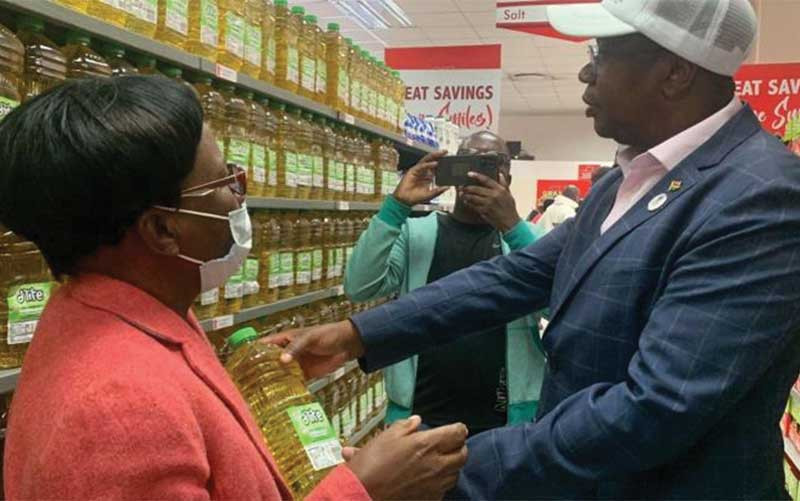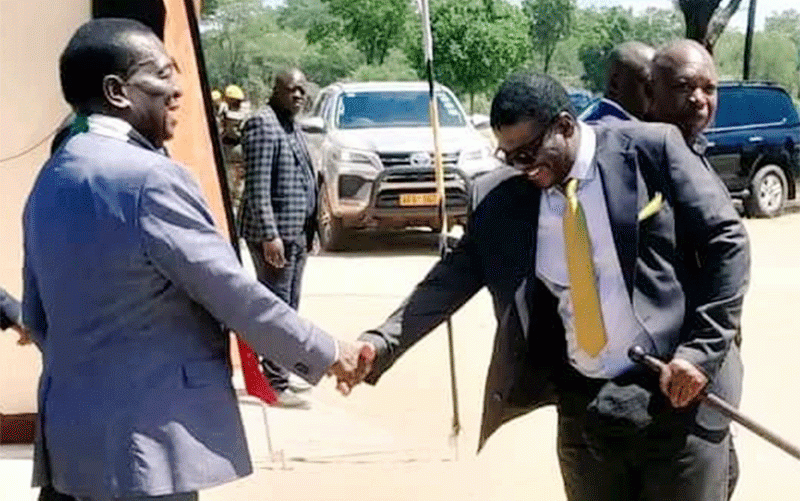
Finance minister Mthuli Ncube recently went around shops in Bulawayo, like a crazed vigilante — demanding small businesses to accept payments in local currency and reportedly pulled down US dollar price tags.
He even berated a hapless branch manager of a renowned retail supermarket over prices he was instructed to effect by his superiors. Why did Ncube opt to vent his anger on the unfortunate manager? Why did he not confront the owners of the supermarket?
So why did Ncube feel that making an embarrassing spectacle at these establishments was the most intellectual thing to do?
Surely, how did he expect that these laughable theatrics would resolve the seemingly unending economic crisis in Zimbabwe?
Let us remember that most of those places he ambushed like a marauding lion, were informal enterprises — which the government has dismally failed to regulate and control.
I can bet my last dollar that barely two hours after Ncube left these shops, new US dollars price tags were already up.
Instead of breathing fire and brimstone — whether at individual businesses or the entire sector — the government, which Ncube is representing, should be dealing with the causes of the skyrocketing prices.
As late iconic musician Oliver Mtukudzi once sang: “Wongorora chikonzero chaita musoro uteme”, meaning that when there is a problem, one needs to deal with the cause not the symptoms.
- Budget dampens workers’ hopes
- Govt issues $24 billion Covid-19 guarantees
- Letter to my People:They have no answers for Nero’s charisma
- ZMX to enhance farm profitability
Keep Reading
Even if Ncube goes around town tearing down price tags, haranguing branch managers, and threatening punitive legal action — the facts on the ground will not change because government’s economic policies have been too inconsistent to stabilise the local currency.
Under the present circumstances what is the point of selling one’s goods and services in useless Zimbabwe dollars which the government itself has very little faith in given that it is using the greenback for most of its transctions.
I have asked this question before: “If President Emmerson Dambudzo Mnangagwa had a shop, how much would he sell a loaf of bread for?”
As it turns out, according to his spokesperson George Charamba, he actually does own on DCK Bakery in the Midlands province. It would be interesting to find out at how much bread is being sold there and in what currency?
I am pretty sure Mnangagwa’s regime is fully aware what needs to be done, and the action it must take to turn around this economy, but for some weird reason is reluctant to make the bold move.
Ncube’s recent order that State institutions should start charging in the local currency is typical proof that government knows what should be done. Government should have insisted on exclusive use of the local currency from the time the Zimdollar was resurrected in 2019.
A currency loathed and distrusted by its own government can never survive, period.
Deploying Ncube to perform theatrics on the streets — meant to fool the public that the government was seized with the matter — will not help to strengthen the Zimdollar.
Portraying the business sector as the enemies who are deriving some perverted pleasure from the people’s misery is a strange way of avoiding to deal with the actual cause of the economic problems, if you ask me.
I want to challenge Ncube and his comrades that when the economy was dollarised between 2009 and 2013 — where were these supposed “saboteurs”, because the economy largely remained stable for that period?
Did the prices of bread, mealie-meal, cooling oil, public transport and other basics not stay the same for years — until Mnangagwa assumed the country’s reins in 2018 following a 2017 military coup?
Zimbabweans are sick and tired of a government that never owns up to its failures — but always resorts to scapegoats.
The dire situation in Zimbabwe does not require comic antics. Ncube and his colleagues should simply implement sound policies that strengthen the economy.
As I have said before, stabilising the currency is not enough — since what that simply entails is keeping inflation and the exchange rate at bay.
The ball has always been in the court of Mnangagwa and his team.
They need to make brave decisions that may even go against their friends who are immensely benefiting from the exchange rate disparities through arbitrage.
If this means fully dollarising the economy — thereby immediately shutting down cartels on the streets — so be it!







